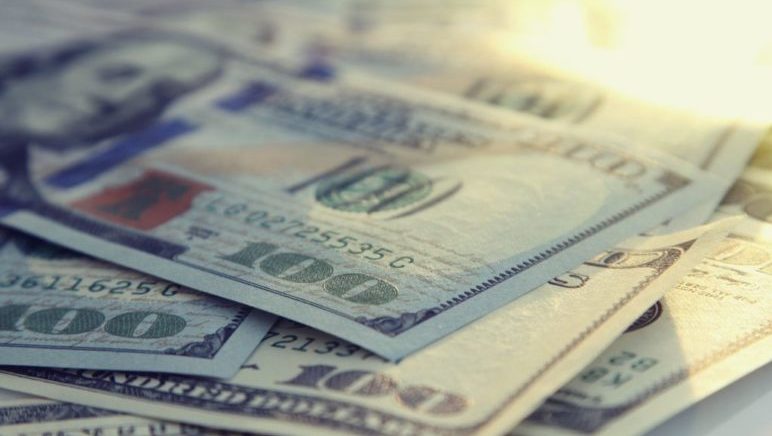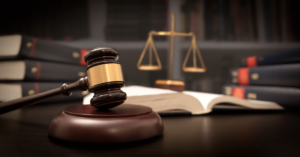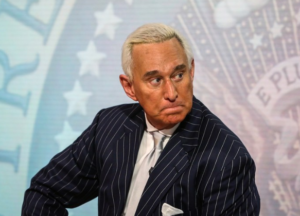INTRO:
“Oral arguments are slated to be heard [were heard] in the case of Christie v. National Collegiate Athletic Association, which hinges on the question of whether a federal ban on states’ ability to legalize sports betting is unconstitutional. They won’t be arguing point spreads or even the social utility of legalized wagering on sports, but instead will be talking about commandeering federal actions that overstep the 10th amendment, which reserves powers not explicitly delegated to the national government to the states, or the people.”
“This morning, the Supreme Court heard oral argument in Christie v. NCAA, an important federalism case. The case involves an effort by the NCAA and various professional sports leagues to block New Jersey’s effort to partially legalize sports gambling under state law. Overall, the argument went well for New Jersey, and badly for the NCAA and its allies (including the federal government).
That’s not only good news for sports bettors, it’s also good news for constitutional federalism. The case has implications that go far beyond the specific issue of gambling. If the NCAA were to prevail, the federal government would have a free hand to block many state efforts to legalize activities previously forbidden under state law. Fortunately, it appears that a majority of the justices don’t want to gamble away federalism.” From: https://www.washingtonpost.com/news/volokh-conspiracy/wp/2017/12/04/place-your-bets-on-federalism-thoughts-on-todays-oral-argument-in-christie-v-ncaa/
FACTS (brief, 6 sentences):
NJ voters approved sports betting. NCAA thinks it’s not a good idea – along with many professional sports leagues. Fed govt. agrees with NCAA, it seems. Online gambling is believed to be a $100 Billion/year business. The matter appears as one of what the Fed govt can control via the 10th Amend. (many issues, and states rights/Federalism, of course). The matter could apply to many other matters as well – even possibly legalized marijuana.
ISSUES (Summarize both sides argument, both perspectives. You can use bullet points):
“The outcome of Christie v. National Collegiate Athletic Association will determine if a federal ban on states’ ability to legalize sports betting is unconstitutional.
If the Supreme Court sides with Christie and strikes down PASPA, what happens next? Some may push for a federal system of sports wagering regulation, while others may opt for states to continue to oversee (and tax) this variety of gambling. There are pros and cons to each approach for a variety of interested parties, but, again, I’ll refrain from hypothesizing about the outcome here because I honestly don’t have enough information to make anything more than a series of semi-educated guesses.
Even if the Supreme Court does not strike down PASPA, the United States could end up with legal sports betting. Congress would simply have to pass a law striking down, in whole or in part, PASPA, which, again, could lead to a variety of outcomes and potential regulatory and operational regimes.”
LAW (links to filings are under links section below):
10th Amendment, Anti-Commandeering, Federalism. Commerce Clause
28 U.S. Code Chapter 178 – PROFESSIONAL AND AMATEUR SPORTS PROTECTION
https://www.law.cornell.edu/uscode/text/28/part-VI/chapter-178
Professional and Amateur Sports Protection Act of 1992
“The Professional and Amateur Sports Protection Act of 1992 (Pub.L. 102–559), also known as the Bradley Act, attempts to define the legal status of sports betting throughout the United States. This act effectively outlawed sports betting nationwide, excluding a few states. The sports lotteries conducted in Oregon, Delaware, and Montana were exempt, as well as the licensed sports pools in Nevada.” From: https://en.wikipedia.org/wiki/Professional_and_Amateur_Sports_Protection_Act_of_1992
“Although New Jersey had a chance to authorize legal betting before PASPA took effect, the state punted.”
DETAILED FACTS (tell the story):
“In 1992, Congress passed the Professional and Amateur Sports Protection Act (PASPA), 28 U.S.C. §§ 3701-3704, to prohibit state-sanctioned sports gambling. Included in PASPA are exceptions for state-sponsored sports wagering in Nevada and sports lotteries in Oregon and Delaware, as well as for New Jersey, provided that New Jersey also enact a sports gambling scheme within one year of PASPA’s enactment, which it did not do. PASPA also permits any sports league whose games are or will be the subject of sports gambling to bring an action to enjoin the gambling.
In 2011, the New Jersey Legislature held a referendum asking voters whether sports gambling should be permitted, and 64 percent voted in favor of a state constitutional amendment that would permit sports gambling. The legislature then drafted and received voter approval of a sports-wagering constitutional amendment, after which time, in 2012, it enacted the Sports Wagering Act (“2012 Act”), which authorized certain regulated sports wagering at New Jersey casinos and racetracks and implemented a comprehensive regulatory scheme for licensing casinos and sporting events.
Five sports leagues sued under PASPA to enjoin the New Jersey law, which the state defended by arguing that PASPA was unconstitutional under the anti-commandeering doctrine. The district court held that PASPA was constitutional and enjoined the 2012 Act. The legislature passed a second law (“2014 Law”) that purported to repeal the regulatory scheme for licensing casinos and sporting events, effectively providing tacit authorization of them. The leagues again sued to enjoin the 2014 Law, and the district court granted summary judgment in favor of the leagues and issued a permanent injunction against the governor and other state agencies. A divided panel of the Third Circuit affirmed, and upon rehearing, the Third Circuit en banc affirmed the majority opinion of the panel.” From: https://www.oyez.org/cases/2017/16-476
Many other states are poised to follow New Jersey’s lead, should it win its case before SCOTUS.
“It’s important to note that Las Vegas gaming operators have not been on the sidelines for Christie’s sport betting push. With geographical expansion of casinos close to its limit, the industry lacks the growth potential that defined it from the 1990s through recent years. National gaming revenues are growing modestly, but it appears that demand for casino gambling—limited to cards, dice, and slot machines—is mostly being filled. There’s simply not that many more (politically feasible) places to add casinos. That might be why the American Gaming Association, the industry’s trade group, has aggressively promoted the broader legalization of sports betting.”
“There are many questions over whether legalized sports betting would push out illegal wagering, or whether it would lead to more betting overall, in which case a legal market would be bigger, possibly substantially bigger, than the illegal one. There is also the question of the degree to which legal sports betting would merely siphon money from one gambling activity to another—the lottery may be particularly susceptible here.
In 2016, all Nevada sports books, combined, won about $219 million. Keep in mind that wagering is not restricted to casinos, but also takes place over mobile devices and other remote methods. It’s worth remembering that Nevada’s gaming revenue is skewed by international high rollers that contribute disproportionately to the win numbers compared to other states. But it’s also true that much of Nevada’s sports betting comes from visitors. So the numbers might balance out.”
OTHER FACTS (interesting facts, related facts, trivia, etc.):
A whole lot of amicus curiae filings (see docket filings link below)
Many groups do not approve:
“Palmetto Family joined a diverse coalition from across the country and the political spectrum as co-signers to an amicus brief arguing against legalizing state-sponsored sports betting. The brief explains that state-sanctioned gambling:
– uses unfair and deceptive marketing practices to target and prey on the financially desperate and the addicted;
– reduces opportunity for millions of American families to improve their economic standing;
– and forces even those citizens who rarely or never gamble to foot the bill for the enormous social costs and state budget problems it leaves behind. From: https://www.palmettofamily.org/sc-steps-up-for-scotus-cases/
ARTICLE LINKS (so we can print them out):
Uncited quotes from:
Other Stuff:
3rd Circuit Opinion
http://www.scotusblog.com/wp-content/uploads/2016/10/16-476-op-below-3d-cir.pdf
Other stuff:
Title: Christopher J. Christie, Governor of New Jersey, et al., Petitioners
v.
National Collegiate Athletic Association, et al.
Docketed: October 12, 2016
Lower Ct: United States Court of Appeals for the Third Circuit
Case Numbers: (14-4546, 14-4568, 14-4569)
Decision Date: August 9, 2016
Christie v. National Collegiate Athletic Association
Consolidated with:
New Jersey Thoroughbred Horsemen’s Association, Inc. v. National Collegiate Athletic Association
Question presented:
https://www.supremecourt.gov/docket/docketfiles/html/qp/16-00476qp.pdf
Docket filings:
https://www.supremecourt.gov/docket/docketfiles/html/public/16-476.html
Many of the other filings (look towards bottom of page):
http://www.scotusblog.com/case-files/cases/christie-v-national-collegiate-athletic-association-2/
Reply of petitioners Christopher J. Christie, Governor of New Jersey, et al. filed.
Place your bets on federalism — thoughts on today’s oral argument in Christie v. NCAA
MEDIA (less than a 2 minutes FUNNY sound bite. You can include a couple of options. We realize that for some topics there is not much):
Christie v. NCAA [SCOTUS brief]
https://www.youtube.com/watch?v=g7yY_r6PC2I
Battle To Legalize Betting On Sports Heads To The Supreme Court
https://www.youtube.com/watch?v=CeiyTLGJnYg
Supreme Court Takes Up New Jersey Sports Betting Case
https://www.youtube.com/watch?v=NfgOOCVZz9U
Betting on sports is a full-time job for this N.J. man
https://www.youtube.com/watch?v=tsd3Zs-YhJ4
US Supreme Court Will Review Legalized Sports Betting Case From New Jersey | What Does it Mean?
https://www.youtube.com/watch?v=ZEKzzSSnqv8




